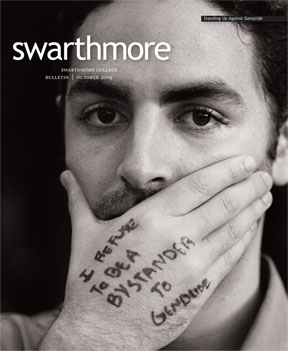What Makes a Good Teacher?
Following primary and secondary school, undergraduate education, graduate study, and more than 20 years as a university faculty member, you might think I could provide a simple answer to the question “What makes a good teacher?” A sequence of physics courses during my sophomore year at Swarthmore illustrates the problem. By the end of that year, I thought Mark Heald was the best teacher I had ever had and that Paul Mangelsdorf ’49 was the worst. [Both Heald and Mangelsdorf are Morris L. Clothier Professors Emeritus of Physics.] I held onto that opinion until halfway through graduate school, when I decided that Heald wasn’t very good and Mangelsdorf was terrific.
Heald was always prepared and organized. He distilled each problem to its essentials and provided elegant, concise solutions. He made the physics enjoyable. By contrast, if you went to Mangelsdorf’s office for help with a problem on a Monday, he would start in Boston and work his way to Chicago via Atlanta. On Tuesday, examining the same problem, he’d start out in Seattle and work his way to Chicago via Dallas. By Wednesday, he would start out in Miami and work his way to Chicago via Denver.
I think almost all of us hated that class; in fact, I think Mangelsdorf overheard our complaints about it. The following spring, he invited me to sit in on the same class and make suggestions to him on how he could teach it better. It was only years later that I realized how much that helped me master the material and, to this day, I cannot decide if his request for my “assistance” was merely clever psychology to get me to sit in on the class or whether my learning was just a by-product of his desire to improve his teaching.
In graduate school, I found that research was much more in keeping with Mangelsdorf’s approach. Good results never came from going the shortest, most elegant distance from A to B—and so my admiration of Mangelsdorf overtook my high opinion of Heald. Since then, I have flip-flopped occasionally, but I eventually settled on the view that Mark Heald taught me the ideal to which scientists aspire—that a problem is not solved and understood until you can condense it to its essence or until you’ve found the shortest, cleanest path from A to B. But if you really want to understand how to play the game, watching highlight films won’t work. You have to do the dirty, inefficient work of practice—and Paul Mangelsdorf was allowing us to see him at practice.
Mark Milanick ’77
Columbia, Mo.
 Email This Page
Email This Page